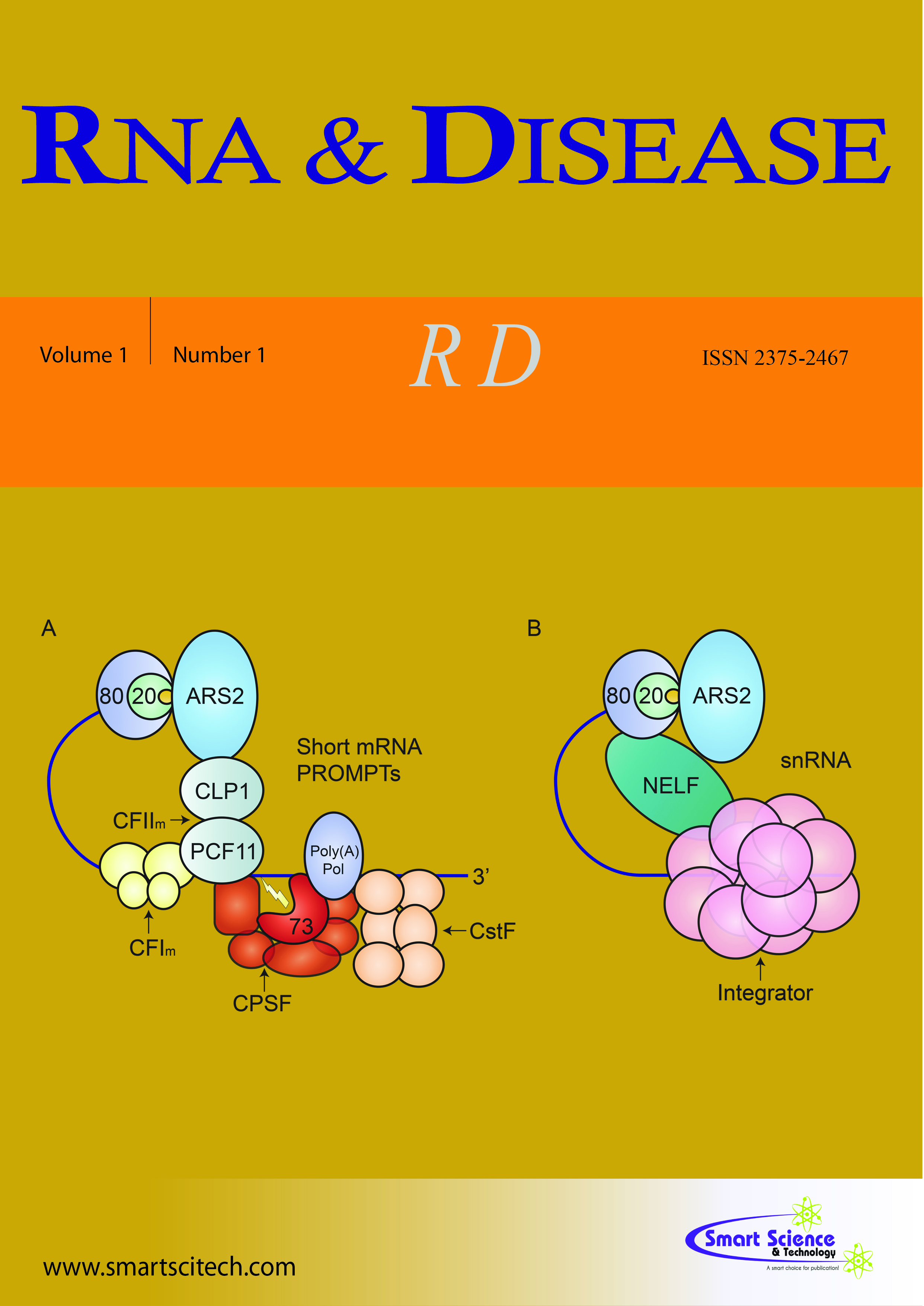Emerging role of microRNAs in breast cancer radiotherapy
DOI: 10.14800/rd.786
Abstract
Breast cancer represents the leading cause of death in women worldwide. Ionizing radiation is one of the most relevant therapeutic approaches for the treatment of this type of cancer. Unfortunately, either resistance of tumor cells to therapeutic doses of radiation or normal tissue tolerance have proven to limit the effectiveness of radiotherapy. In the last few years, several studies have highlighted an important link between radioresistance, cancer and microRNAs (miRNAs), an emerging class of endogenous non coding RNAs that control gene expression at post-transcriptional/translational level. MiRNAs may influence carcinogenesis at multiple stages and effectively control tumor radiosensitivity as they affect levels of DNA damage repair, cell cycle checkpoint, apoptosis, radio-related signal transduction pathways and tumor microenvironment-related genes. Since radiation- and multidrug resistances are the characteristic properties of numerous type of tumors, there is increasing interest in establishing a clear association between miRNA expression in tumors and chemo- or radio-sensitivity, with regard to predicting or modulating sensitivity. In the present review, we summarize the emerging evidence of miRNA involvement in the radioresponse of breast tumors and discuss their potential as radiosensitizers.












